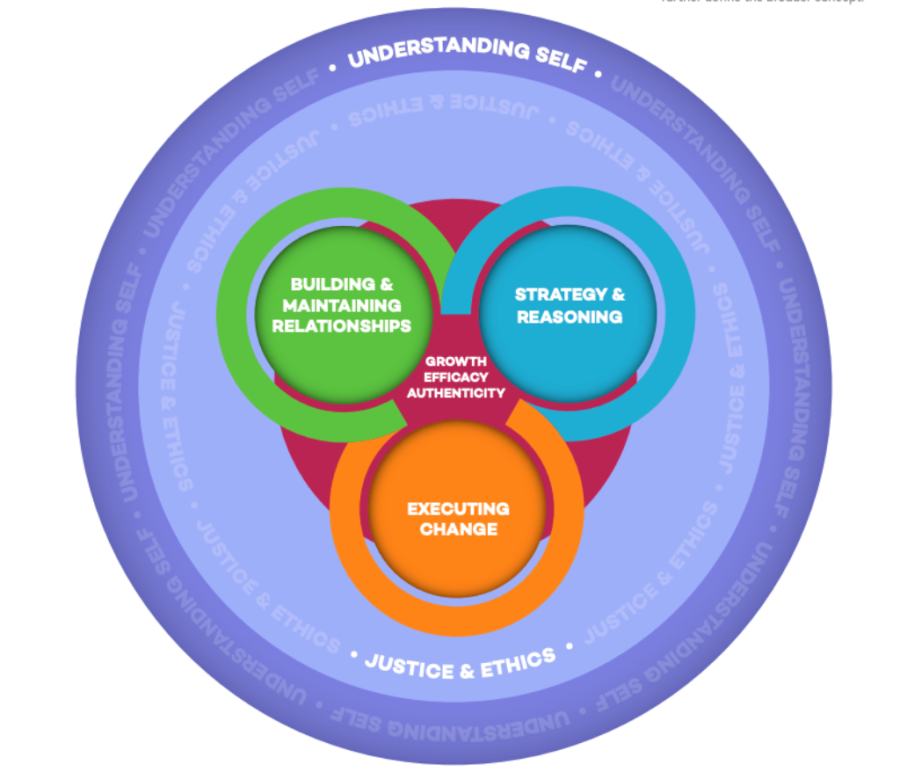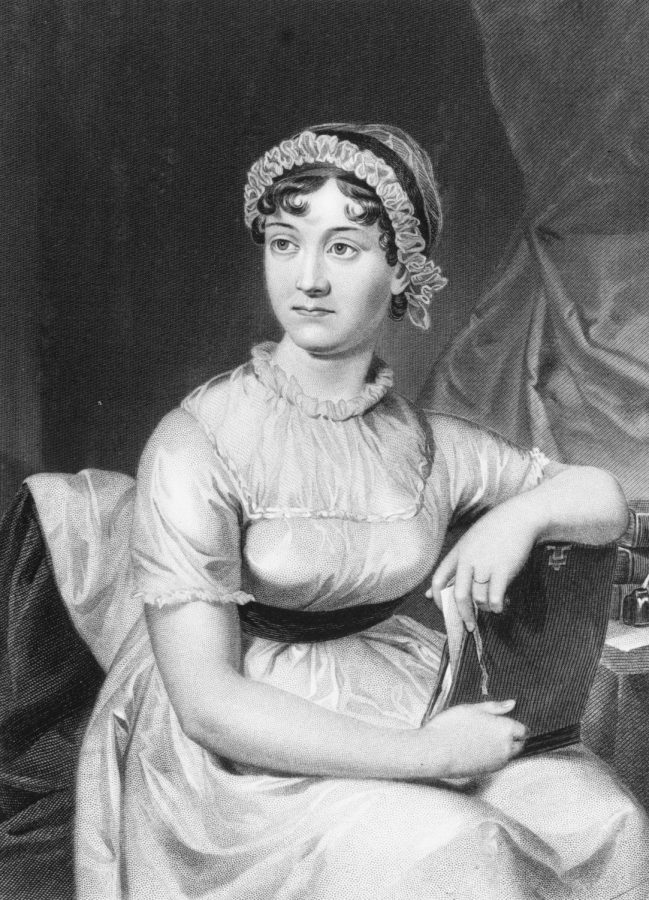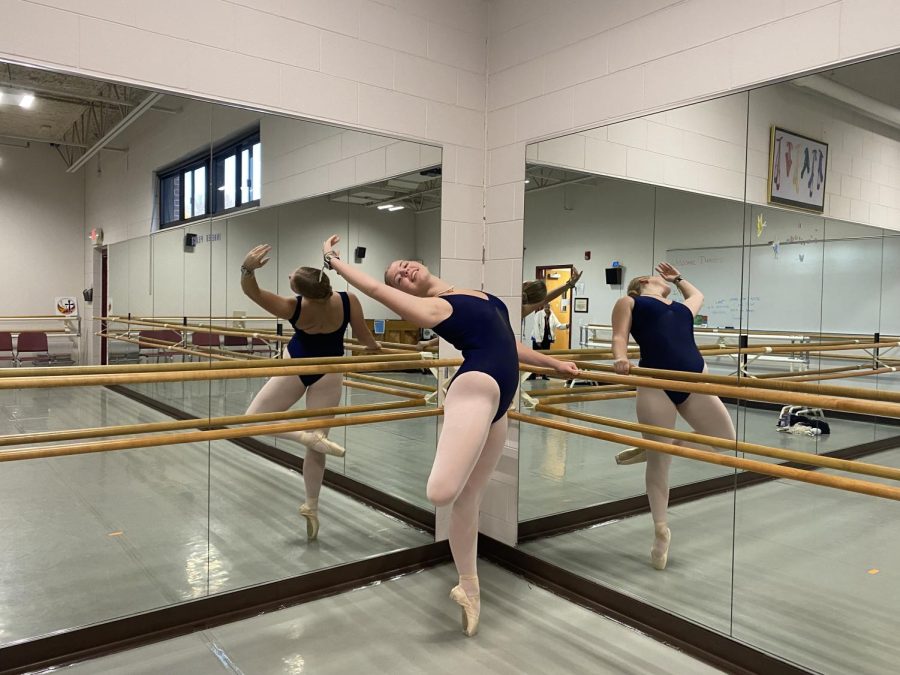There’s always a certain amount of excitement at the start of every school year – even as we mourn the end of those stay-up-late-and-sleep-in summer days, we are definitely excited to share our love of learning with a new set of students. Yes, I’m happy to be back in school ever since I first started school at 4 years old— that’s insane! I can think of millions of people who would rather not be in school, and yet here I am, with my other insane co-workers who are just as happy as I am to be rearranging our desks into the optimal space. You’d be surprised at how much thought and consideration goes into the placement of those chairs and tables. I’ve rearranged my own classroom more times than I can count.
A few years ago, I started teaching Shakespeare’s tragedy, Othello, to the seniors at Visitation. I moved Hamlet to summer reading for the A.P. students and added The Picture of Dorian Gray for the regular British Literature students, and this foundation for the first official unit of 12th grade English makes so much sense as my students meet the complicated villain, Iago, and sympathize with and mourn the tragic hero, Othello. A student told me yesterday that Iago’s insidious whispering in Othello’s ear reminded her of the poison Claudius pours into his sleeping brother’s ear. His brother dies, and Claudius can assume his place. My student reasoned, what Iago really wants is to be Othello and possess his wife Desdemona just like Claudius wanted to be king and marry Gertrude. Brilliant insight! Side note: For the life of me, I can’t get them to like Gertrude, but they always mourn for Desdemona as they do for Ophelia.
Another student noted how much talking Iago does and, she said, Lord Henry did the same amount of talking in Dorian Gray – she already suspects Othello, like Dorian, will somehow be influenced and manipulated by Iago’s words: “Iago will cause Othello’s downfall just like Lord Henry caused Dorian’s!”
I ask them, what if Iago used his particularly spectacular ability to communicate for the common good? They blink at me. What if, in Act I, he framed Othello and Desdemona’s marriage as a blessing instead of as a disgrace? They see the difference immediately. And then I take them through a brief review of Dr. Barbara O’Keefe’s 1996 text, The Art of Framing, and Gail Fairhurst’s 2010 study, The Power of Framing: Creating the Language of Leadership.
Language is power waiting to be unleashed according to these communication and business management experts. The real key, though, is all in how one wields that power. Does one communicate expressively, prioritizing clear, direct communication, or does one develop the ability to communicate conventionally by considering appropriateness and the social context? Or maybe one has so refined communication that a level of rhetoric is achieved and one can deliver a message strategically. This is the highest level of communication which reveals the most skill – something, I advise, they all should be developing. This is how we choose joy and help others to choose joy even when we are sad; this is how love becomes real and not an ephemeral emotion, how gratitude reveals humility and grace.
I tell my students in order to get really good at communication, they need to know about SAM and PAT. Who is the Speaker? Who is the Audience? What is the Message? And then take this generally linear method of communication in a new direction by considering the purpose, the nuances of the audience, and the necessary tone.
We then have fun – try this BuzzFeed quiz which will help you determine your preferred style of communication. “I’m a diplomat!” one young woman volunteers as another calls across the class, “I’m a team-player – yes!” We go around the class until everyone shares their results: analyst, leader, humor-communicator, empathizer, direct-communicator. We look back at Fairhurst’s three categories and determine where we fit and how we can improve our communication and leadership skills. And then we take all that information and apply it to Shakespeare.
They are on the road to mastery as they clearly recognize Iago, the master-manipulator, as a rhetorical communicator who can easily create, re-define, and direct his audience to a specific goal. He gets what he wants because he is able to harness his emotions, use social conventions unerringly, and word his message strategically to achieve his desired outcome, which, in this case, is Othello’s downfall. Michael Cassio is definitely a conventional communicator – one student points out he is noted as being charming, and, so long as his charm is natural and not pretentious, then he clearly knows how to work a room like a diplomat. Othello, they decide, is an expressive communicator. Though he seems to know social conventions, he is more open and honest – a transparent leader – and, as one girl points out, he is willing to forego convention in favor of expressing his love. After all, he elopes with Desdemona and greets her as his “Fair warrior!” – something that shocks the other characters in the play.
The lesson takes just about the whole hour – but it’s an hour during which our brains have bounced from business to communication to leadership to literature and even to ourselves. It’s a fun class to teach and every year, I learn something new about myself, my students, and Shakespeare’s play, Othello — and that right there is the secret to why I’m excited to come back to school every year.







